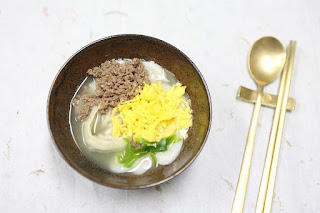2017年2月25日土曜日 - 



Luke: My days off in Japan Part2 コインランドリーで助けてもらった話
Well,
if you're reading this after my first blog post and expecting my thoughts on
Harima then I must apologize, I'm afraid I haven't been to Harima yet. I have a
long list of excuses: my ankle is somewhat sore
after some exercise I did last week, it rained the day before I planned to go,
I was a little bit tired and the dog ate my homework.
I will certainly go soon though, and I look forward to writing about it
afterward, so please keep your eye out
for that blog post.
In the meantime there are myriad topics to write about, the first of which came to me last weekend while I was in my local launderette, or to borrow a rather wonderful phrase from Japanese English, my local coin laundry. I have a washing machine at home but I enjoy doing laundry at this particular coin laundry for three reasons: firstly, I love the smell of the place. Honestly, it smells heavenly in there. Secondly, I really enjoy the ambiance in general; it's very therapeutic. Finally, I like to use the tumble-dryer; it's so much more convenient than hanging up the laundry, waiting for it to dry and all the while praying that it doesn't rain.

Preamble out the way, I can get to the real point of this post. I was in the aforementioned coin laundry enjoying the smell and the atmosphere as I always do. Having just washed all my clothes, I proceeded to place them all into the only available tumble-dryer. I closed the door and tried to deposit a coin in the slot, which was when I realized that this particular machine was out of order. I'm not sure exactly what the problem was. I believe a coin had become jammed in the slot, making it impossible to insert more coins. As I said, there were seemingly no other machines available and so I began to worry about my wet clothes; we all know that damp smell, the kind of smell that lingers if clothes are left wet and crumpled for too long. I began to panic and turned to the only other person in the coin laundry, another patron, who presumably was enjoying the smell and the atmosphere as I was, and in terribly broken Japanese I asked for his help.
This
is my point with this blog: without any hesitation
he got up and came to try and help me. He spent ten minutes investigating the
machine for me. When he couldn't fix it, he investigated every other machine in
the coin laundry until he discovered that one of the washing machines
was, in fact, a washer-dryer. He then helped me to decipher
the settings on said machine. To be honest, I was really moved by his kindness
and it occurred to me as I strolled home that I could write this post any week
and I would have a different story of the same kind to tell. I am constantly
amazed by and grateful for the kindness of strangers in Japan, and every other
non-Japanese person I’ve met that has spent time in Japan has told me similar
stories. It's always such a comfort to know that regardless
of where we are in Japan and, as in my case, regardless of how badly
we speak Japanese, Japanese people will always do everything they can to help
in whatever way they can.
excuses : 言い訳
ankle : 足首
sore : 痛み
the dog ate my
homework : 犬に宿題を食べられた(課題ができなかった時の定番の言い訳)
keep your eye out : 目を光らせてくださいね
myriad : 数え切れない
launderette : コインランドリー
ambiance : 雰囲気
therapeutic : 癒される
tumble-dryer : 回転式乾燥機
preamble : 前文
aforementioned : 上述の
proceeded : (次の段階に)進んだ
particular : 当にこの
out of order : 故障中
jammed : 詰まった
damp : じめじめした
lingers : いつまでも残っている
crumpled : しわくちゃになる
presumably : おそらく
without any hesitation : 嫌な顔一つせず
decipher : 解読する
regardless of where : 場所にかかわらず





